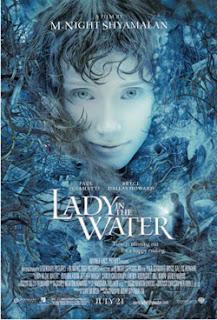
After discussing Baby Einstein, it is a breath of fresh air to talk about some of the quality educational animation for kids coming out of Disney. Rather than the parade of product placements that Baby Einstein dangles in front of limp one year olds and their over anxious mothers, Disney has come up with all new animation and songs for its Winnie the Pooh series to engage kids from 3 to 6 on subjects like shapes and sizes and ABC's
and ABC's . The series has been nominated for an Annie award. The director, Dave Bossert, is Creative Director of Walt Disney Animation, Special Projects. He is also a young father and a veteran of some of Disney's better feature animation, and seems to bring the same creativity and enthusiasm to this educational project (working with a Harvard educator). My husband, David Apatoff, interviewed Bossert for his blog and mine:
. The series has been nominated for an Annie award. The director, Dave Bossert, is Creative Director of Walt Disney Animation, Special Projects. He is also a young father and a veteran of some of Disney's better feature animation, and seems to bring the same creativity and enthusiasm to this educational project (working with a Harvard educator). My husband, David Apatoff, interviewed Bossert for his blog and mine:
Dave Bossert started in the animation business before the big transformation to digital technology, and he has been responsible for digitally restoring some of the Disney classic movies such as Bambi. I asked him how the animation today compares with the classics:
Q: what's better about animation today and what's worse?
A: Things are terrific today. Animators have enormous new tools at their disposal. Digital technology helps us to make films without the inherent flaws of hand painting, such as dust, scratches and cell shadows. The clarity and consistency are much closer to the original intent of the artist.
Q: What part of your job is technology and what part is art?
A: You have to maintain a balance between what the machine does and what you do. In my office I have a traditional drawing board, pencils and brushes alongside computer monitors. But the art has to lead the technology. The technology shouldn't lead the art.
Q: Does the technology hinder you at all?
A: I look at the computer as another tool, just like a neat new pencil or a really cool brush.
Q: Are you worried about keeping up with all the changes? Aren't you concerned that 20 years from now this will all look out of date?
A: Twenty years??? Try twenty months! But we do our best to stay on top of things. Over the past 6 to 8 years, we at Disney have seen a real convergence between the computer jocks and the artists. It use to be that the new talent was good at one or the other, but these days they are good at both. That needs to continue for some time before it makes a big impact.
Talking with Bossert, one can't be help but be impressed by his curiosity. "The most important thing I've learned about animation," he says, "is that I haven't learned everything." A self-confessed "sponge," he is constantly exploring Youtube and other internet phenomena, trying out blu-ray and other new technologies, and reading all he can. All that, and he draws, too. As director of the new Winnie the Pooh series, he was involved at every stage, from the pencil on paper for the initial concept sketches to the marketing of the finished product.








